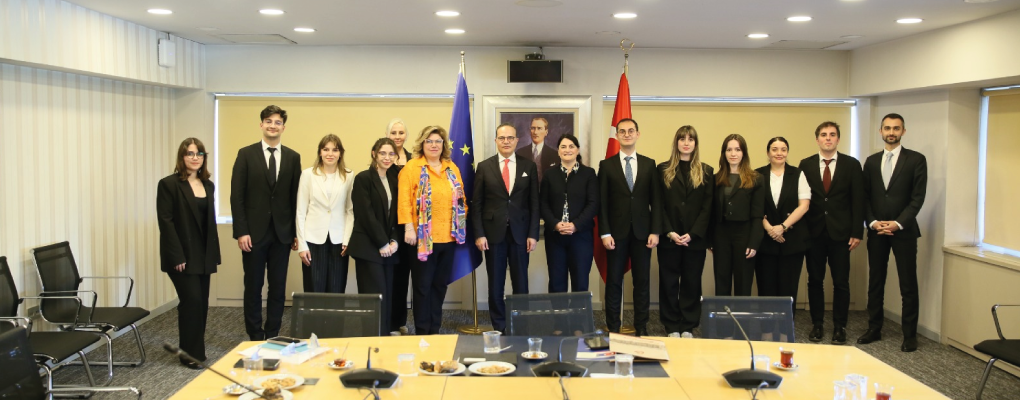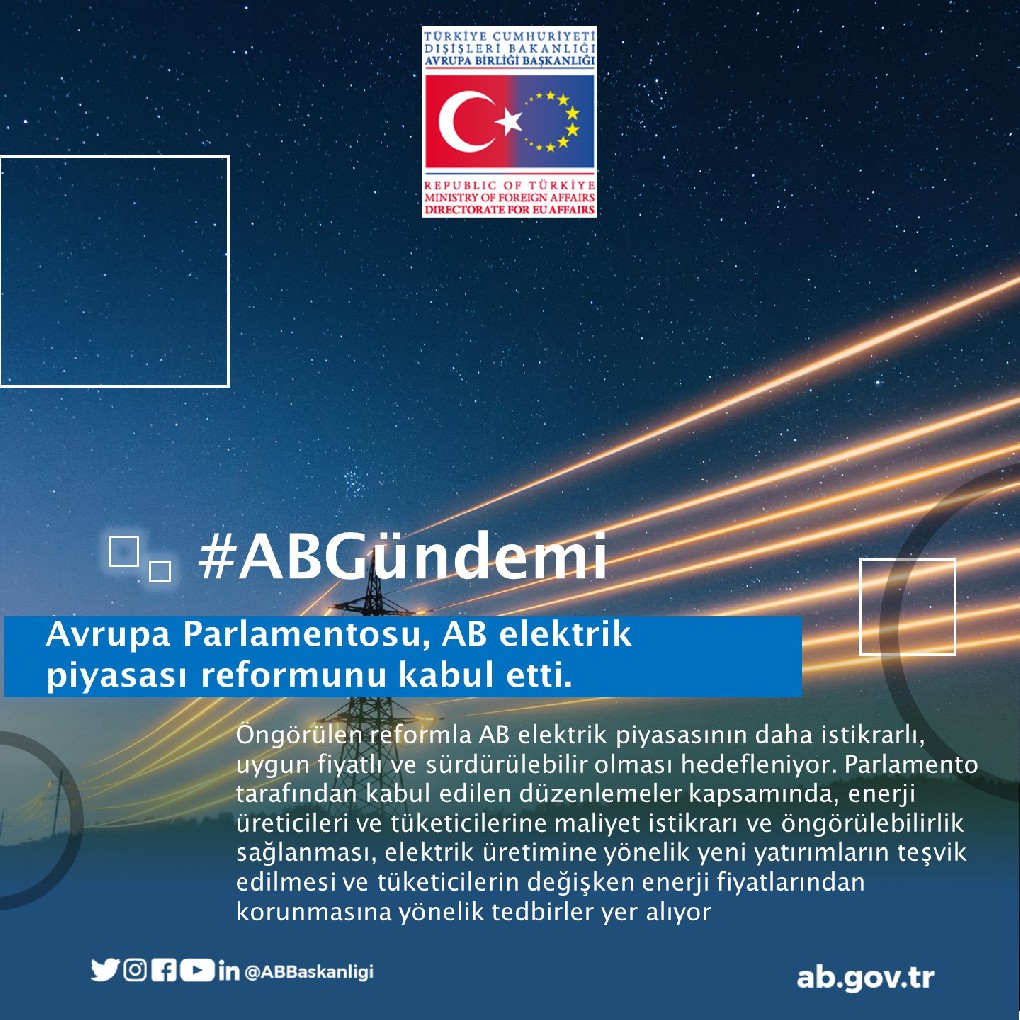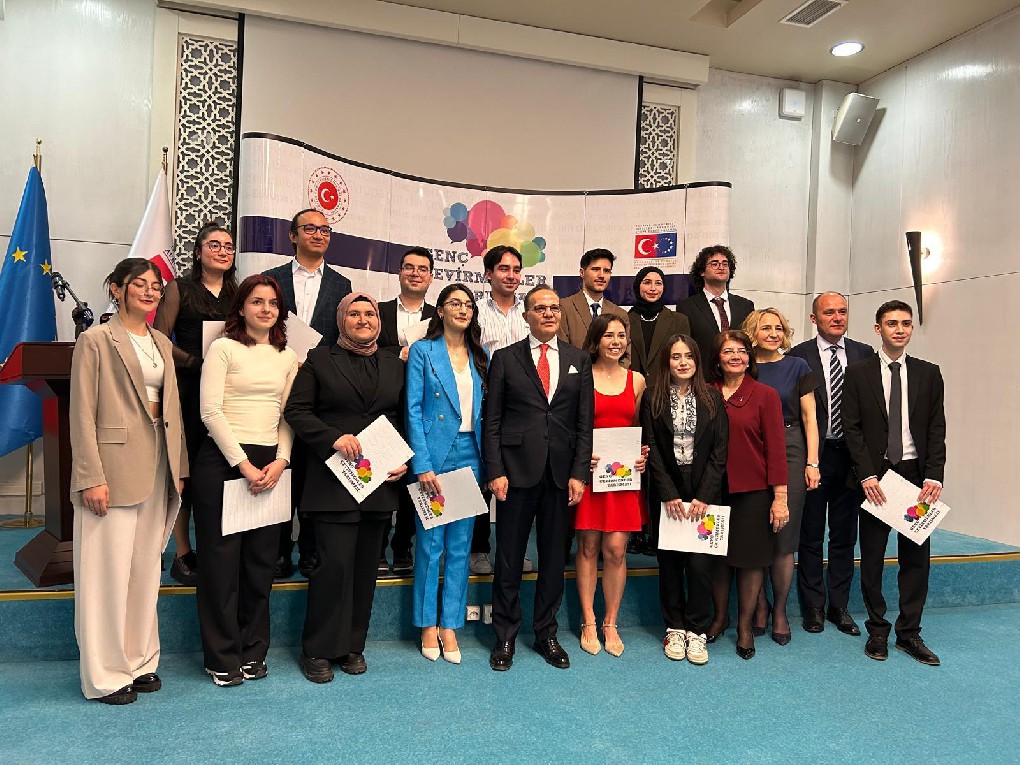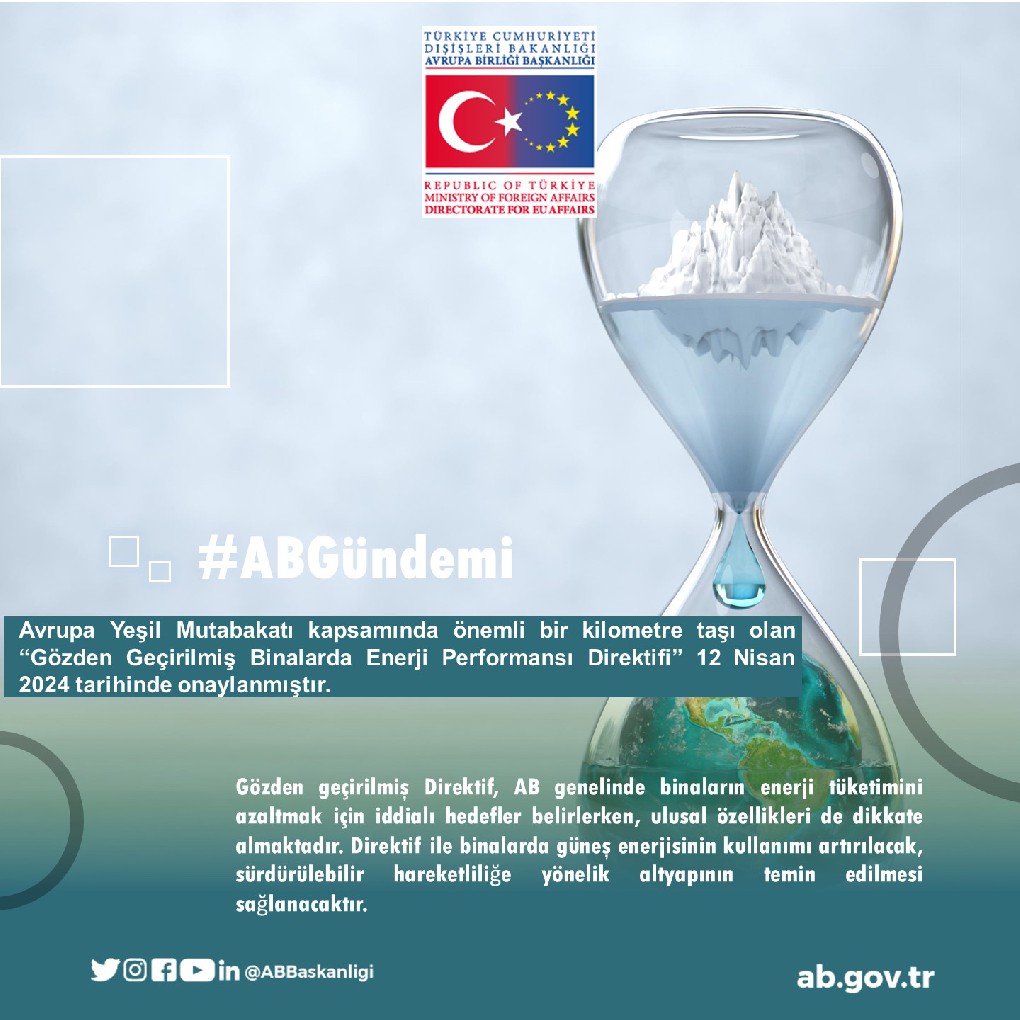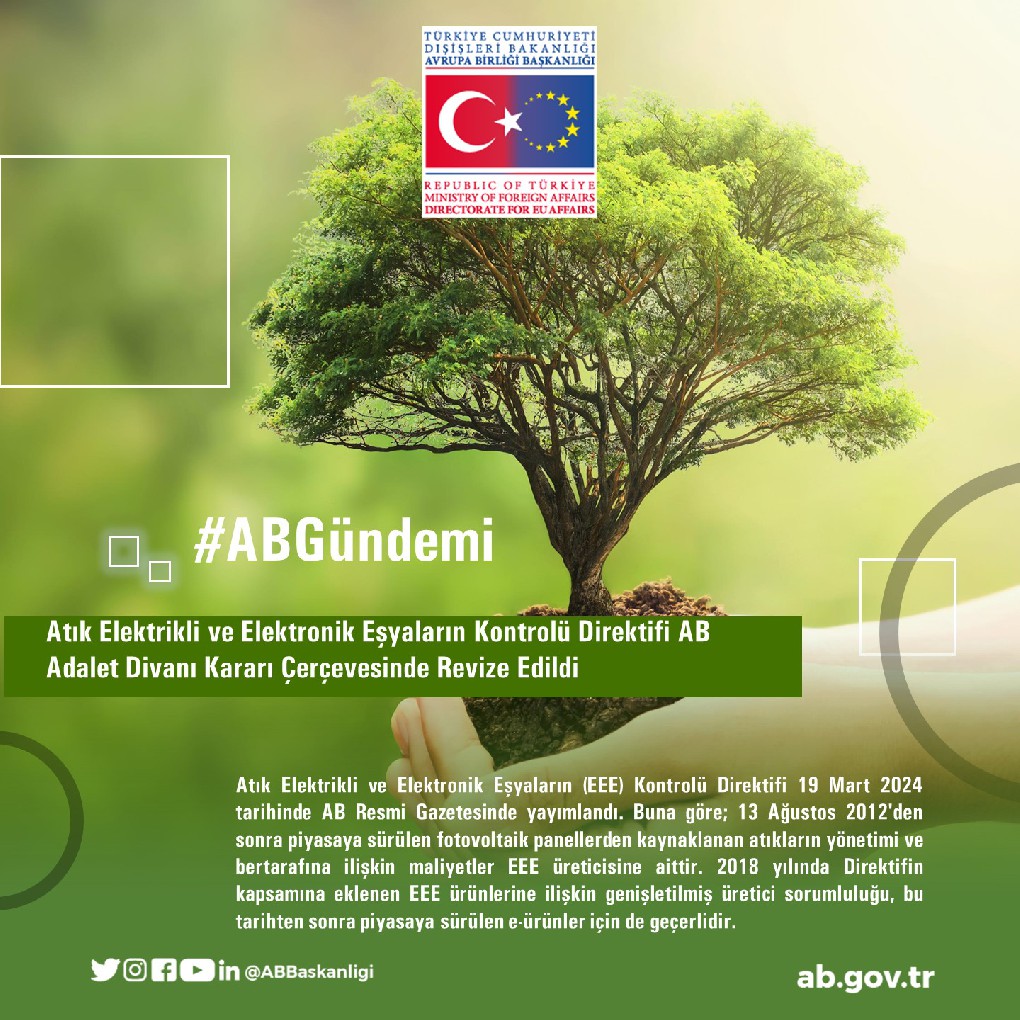- HOMEWelcome
- DIRECTORATE FOR EU AFFAIRSStructure
- E.U.Structure
- TÜRKİYE-EU RELATIONS
- History of Türkiye- EU Relations
- Main Documents
- Agreements
- Protocols
- Accession Partnership Documents
- National Programmes for the Adoption of the Acquis (NPAA)
- Türkiye Reports Prepared by the European Commission
- Enlargement Strategy Papers
- Türkiye’s National Action Plan for the EU Accession
- Türkiye’s National Action Plan for the EU Accession (2021-2023)
- Association Council Decisions
- Documents on Türkiye-EU Summits
- Institutional Structure
- Customs Union
- Türkiye- EU High Level Dialogue Meetings
- DATASources
- MEDIANews
- CONTACTContact Us
EU Minister Ömer Çelik’s article published in New Europe
Minister for EU Affairs and Chief Negotiator Ömer Çelik’s article titled “Time for EU member states to reflect on the strategic significance of Türkiye” is published in New Europe.
“Time for EU member states to reflect on the strategic significance of Türkiye”
By Ömer Çelik, Minister of European Union Affairs and as the Chief Negotiator for Turkish Accession to the European Union.
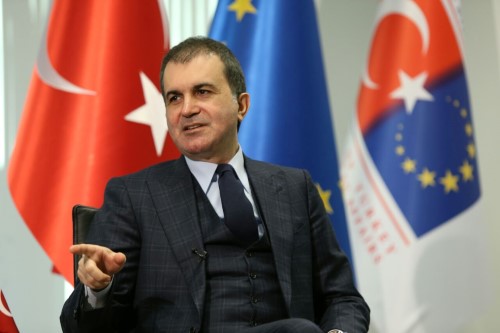
From counter-terrorism to energy security, from economy to irregular migration, the world is confronted with new global challenges of unprecedented dimensions that need sound stance and joint and coordinated efforts. I believe that overcoming these common challenges should be a top priority for Türkiye-EU relations.
European integration, which has been evolved through going in and out of crises since its inception, is not facing an unknown today. What makes it peculiar this time is the pace and scale of unwanted events and threats to which the EU is not sufficiently prepared to adapt and react on time.
In 1950s, the EU was working to pull coal and steel production under one entity for the hope of peace, security and prosperity. In 1990s, it was getting ready to modernize and embrace countries from Eastern Europe. The EU of 2008 which just wanted to take some time off after another wave of enlargement was hit by the euro crisis. While struggling to cope for the stability of euro, the EU was not ready for the events unfolding in the region which were about to cause the largest ever movement of people towards Europe since World War II.
The previous socio-economic crises have traditionally empowered the European integration. Yet, for the first time a crisis is coupled with a crisis of values.
The so-called refugee crisis received an incredible amount of reaction within the Member States that made the unthinkable happen, the Brexit. The waves of terror attacks have changed the EU priorities from protecting fundamental rights and freedoms to securing borders and protecting its citizens. The far right went too far depicting refugees and Islam as an attack to the European identity and strengthened its influence throughout Europe. Now Europe has become such a fertile ground for ultra-nationalists and xenophobes where intolerance to diversity, anti-EU political movements, hate-crimes, Islamophobia and anti-Semitism are on the rise. European leaders should not be trapped by the populist demands of far-right politicians. It is very obvious that far-right political movements are targeting the core ideals that we all share. Alienating Türkiye from the European family as a response to these movements only to capture some of their electoral support will not ensure success in the upcoming elections.
Considering the many challenges in our vicinity and beyond, an ever stronger EU is urgently needed. And the EU needs the robust and ever-closer Türkiye.
European refugee crisis clearly showed us that Türkiye’s and EU’s problems are intertwined. Intertwined problems require a simultaneous and common response. Türkiye started to face the refugee crisis in 2011, well before start of the mass influx to EU countries in 2015. What the EU should have done was to immediately start collaborating with Türkiye for helping Syrian refugees and setting up safe zones in Syria.
Unfortunately, we witnessed that EU only started a substantial cooperation with Türkiye during the last months of 2015. In the end, cooperation with Türkiye showed to be immensely successful in solving of a serious crisis faced by the EU. However, if from the start we had had the opportunity to collaborate, refugees themselves and the EU would have been far better off.
Türkiye opened its doors to refugees and on some occasions received as many as 100.000 people a day. As of November, the arrivals to Greek Islands from Türkiye is 66 daily on average, which is a remarkable difference when compared to 7.000 daily in October last year when Türkiye and EU had not yet started a comprehensive cooperation effort. Türkiye is proud of its citizens who have shown great vigilance not to have turned these unprecedented events into radical politics or domestic violence towards refugees. As Türkiye has pulled its weight regarding the 18th March Agreement, it would be now fair that EU delivers on its commitments, including visa liberalization for Turkish citizens.
Unfortunately, the world is confronted with an epidemic menace, a menace that needs to be diagnosed and treated properly. The threat arising from terrorism is constantly evolving. Leaving aside all prejudices, all doubts, and all questions, we must drain the swamp of this evil immediately. We should never forget that terrorists are terrorists, not freedom fighters. Instead of being selective, we must do more to cooperate against all kinds of terrorist activities.
Today, more than ever before, the security of EU and Türkiye is interconnected. The dramatic changes we have witnessed in Syria and Iraq, from Middle East to the very centres of Europe, all mean that the EU and Türkiye should act jointly against security threats. However, it does not mean that Türkiye-EU relations are only limited to cooperation on irregular migration or counter-terrorism.
Türkiye’s accession negotiation is the backbone of Türkiye-EU relations. Despite closing of all and opening of many negotiating chapters have been blocked since 2006 due to political reasons, Türkiye continues with determination its harmonisation process with the EU acquis under each chapter and is committed to do so. Türkiye’s Progress Report of 2016 underlined Türkiye’s commitment and confirmed that Türkiye’s alignment on 30 chapters out of 33 is at a good level.
Türkiye is a functioning European democracy with its constitutional institutions and is established on a well-structured state apparatus which has a long tradition. Turkish people who stood united in solidarity without any hesitation on 15 July, against a heinous coup attempt by the FETÖ terrorist organization, should become a symbol for all people who undertake a struggle for democratic values.
EU membership is a strategic objective for Türkiye and it is not the European Parliament’s role to decide from today the prospective of the accession talks through a narrow-minded resolution suggesting a call for the temporary freeze of negotiations with Türkiye. On the contrary it is the very responsibility of the European Parliament to show solidarity with Türkiye, a candidate country, countering terrorism and upholding its democracy against unprecedented threats. We also know the efforts of Austria which is pushing EU member states to halt Türkiye’s EU membership talks. Such efforts not only discourage Turkish people but also do not generate any good for the EU’s current crises that require Türkiye’s cooperation as well as for the Türkiye-EU relations.
At this juncture it is vital that the EU should respond properly to Türkiye’s determination with a view to reassess its handling of the accession talks and adopt a firm but fair approach towards Türkiye. This will also demonstrate that the Union is still capable of constructing a wider vision for Europe and for the world.
It is now high time to place Turkish-EU relations in a new realm and to steer the wheel of change to the benefit of both sides.
Click here to view the article.




